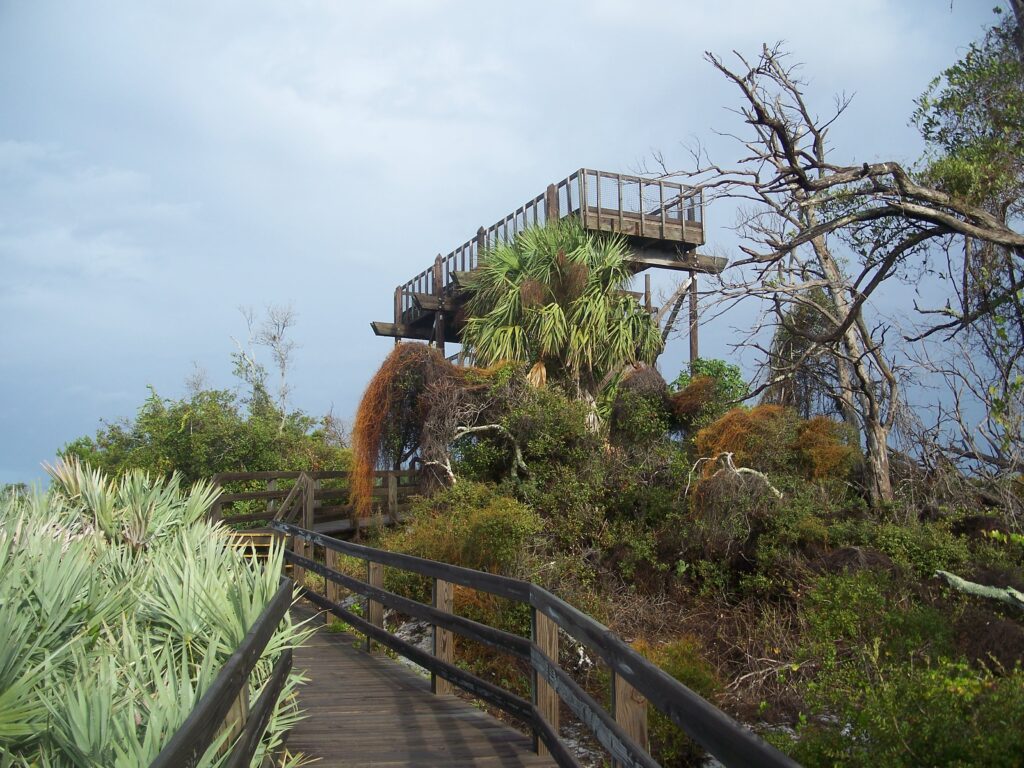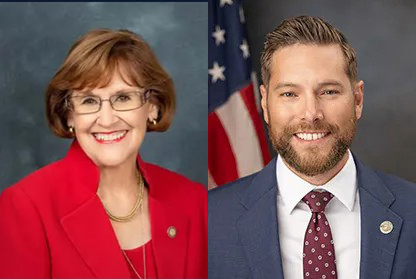By Florida state Sen. Gayle Harrell and state Rep. John Snyder
We are blessed to have one of the largest state park systems in the country with 175 state parks, including over 815,000 acres and 101 miles of beach. It has been recognized nationally as one of the nation’s top parks systems — with our beautiful Jonathan Dickinson State Park at the top of the list.
As Florida has grown into the third most-populated state in the country, millions of our residents and visitors have found refuge from the frenetic pace of life within our treasured parks — which are among the few places where folks can visit “Old Florida” and relish the handiwork of God’s creation.
Last year, an effort came forward that would have added golf courses, disc golf, pickleball courts and hotels to nine state parks, fundamentally changing them forever. Unsurprisingly, this plan sparked a major controversy across the state, causing immense public backlash. Immediately, our community and Floridians from the Panhandle to the Keys came together, stepped up and made their voices heard and the refrain clear: Our state parks are not for sale.
Within a matter of days, Gov. Ron DeSantis, who has always prioritized our environment, squashed the plan, but the question remained: How do we ensure something like this never happens again?
Parks must be protected from development

That is why we are sponsoring Senate Bill 80 and House Bill 209, the State Park Preservation Act. Our goal is to preserve and protect our parks by carefully defining and clarifying the purpose of and function of our state parks, creating transparency in the process when significant changes are proposed to our park system, and requiring a fiscal analysis of the needs of our park system.
Our bill clearly defines that the purpose of our park system is to provide conservation-based public outdoor recreational uses, public access and related amenities, and scientific research areas. We want to ensure this state’s plant and animal species are preserved for the benefit and enjoyment of our residents, visitors, and especially for future generations.
To be sure that there is no confusion about what we mean, we specifically include some examples of what could be included in conservation-based public outdoor recreational uses, i.e., fishing, camping, bicycling, hiking, nature study, swimming, boating, canoeing, horseback riding, diving, birding, sailing, jogging and other similar related conservation-based activities. We also specifically exclude sports that require sporting facilities, including golf courses, tennis courts, pickleball courts, ball fields and other similar facilities.
Bill provides for future park needs, too
To create transparency, our bill establishes a state park advisory group and requires its input into the land management plans, specifically when any changes are proposed. Very importantly, we require at least one public hearing when a conservation land management plan is updated and require that the state Department of Environmental Protection (DEP) must give at least 30 days’ notice before the public hearing.
We want the public to have sufficient time to understand the changes and have input into them. We also require that electronic copies be available to the public. (This is currently applicable only for parcels that exceed 160 acres in size.)
Many of our state parks have facilities that are in need of major repair, renovation and restoration. We require that the DEP do a fiscal analysis of the needs for renovation and repair in our state parks.
DEP must provide the Legislature with the cost of addressing the backlog of the deferred maintenance and repairs for each state park, as well as a plan to reduce or eliminate the backlog for the state park system by July 1, 2035. We are committed to addressing that backlog.
Here’s your call to action
We cannot pass SB 80 and HB 209 alone. We need your help.
The legislative session has begun and we only have six weeks left for our bills to be heard in committee and be voted on by the Senate and the House of Representatives.

The Senate version of the bill’s next scheduled stop is the Appropriations Committee on Agriculture, Environment and General Government. The House version is scheduled for a hearing in the State Affairs Committee.
Please contact your local legislators (at www.flsenate.gov and www.flhouse.gov) and let them know how important this legislation is to preserve and protect our incredible state park system.
Tell your legislators what your local state park means to you and your family. Share your personal experiences hiking, biking, camping, swimming, walking the beach or just watching a sunset in one of our state parks.
Let your legislators know that SB 80 and HB 209 must pass to preserve and protect our state parks for our children and grandchildren.
Sen. Gayle Harrell, R-Stuart, represents Senate District 31, which includes Martin and parts of St. Lucie and Palm Beach counties. Rep. John Snyder, R-Stuart, represents House District 86, which includes parts of Martin and Palm Beach counties.
This opinion piece was originally published by newspapers in the USA Today Network – Florida Opinion Group, which are media partners of The Invading Sea. Banner photo: The boardwalk to the observation tower at Jonathan Dickinson State Park (Ebyabe, CC BY-SA 3.0, via Wikimedia Commons).
Sign up for The Invading Sea newsletter by visiting here. To support The Invading Sea, click here to make a donation. If you are interested in submitting an opinion piece to The Invading Sea, email Editor Nathan Crabbe at ncrabbe@fau.edu.



